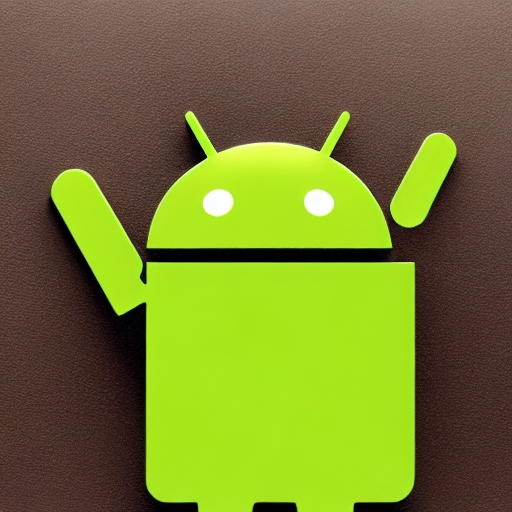Can AI pick the perfect match for you?
Are you one of those people who always swipe left and right, choosing from the endless stream of people or just booties. Well now, you don’t actually need to do this. We are on the threshold of the AI era, where machines choose wiser than human beings. And as a society full of reason we use fucking modern technology for finding the most suitable dick or pussy.
How was it made earlier?
Basically, you gave the info yourself, like in the OkCupid, which asks you to fill out long personal essays and answer personality questionnaires which they use to pair members by compatibility (though when it comes to predicting attraction, researchers find these surveys dubious).
Profiles like these are rich in information, but they take time to fill out and give daters ample incentive to lie about themselves (by asking questions like, “How often do you work out?” or “Are you messy?”). On the other hand, companies like Tinder, Bumble, and Hinge skip surveys and long essays, instead of asking users to link their social media accounts. Tinder populates profiles with Spotify artists, Facebook friends and likes, and Instagram photos. Instead of matching users by “compatibility,” these apps work to provide a stream of warm bodies as fast as possible.
What can social media say about you?
Frankly, almost anything. In the attempts of attention-seeking, people nowadays reveal more in Twitter posts, Facebook likes, Instagram photos, and Foursquare check-ins than can be realized.
Giving dating apps access to this data and more: when one journalist from The Guardian asked Tinder for all the information it had on her, the company sent her a report 800 pages long. Sound fucked up, doesn’t it?
Behold the new age of dating apps.
Dating apps promise to connect us with people we’re supposed to be with—momentarily, or more—allegedly better than we know ourselves. Sometimes it works out, sometimes it doesn’t. But as machine learning algorithms become more accurate and accessible than ever, dating companies will be able to learn more precisely who we are and who we “should” go on dates with.
In the future, apps like Tinder may be able to infer more about our personalities and lifestyles through our social media activity than an eHarmony questionnaire ever could capture. Researchers already think they can predict how neurotic we are from our Foursquare check-ins, whether or not we’re depressed from our Tweets and the filters we choose on Instagram, and how intelligent, happy, and likely to use drugs we are from our Facebook likes.
If he likes curly fries, chances are, he is smart
What’s more, the relationship between our online behavior and what it implies about us is often unintuitive.
One 2013 study from Cambridge University that analyzed the connection between Facebook likes and personality traits found the biggest predictors of intelligence were liking “Science” and “The Colbert Report” (unsurprising) but also “Thunderstorms” and “Curly Fries.” That connection might defy human logic, but what does that matter if you’re feeding a personality algorithm into a matchmaking algorithm?
Imagine online dating without fucking weirdos?
Companies could use insights from daters’ online behavior to catch red flags and prevent some people from joining in the first place. Some dating services asked members to report white supremacists and banned them. But in the future, apps could identify sexists/racists/homophobes by their social media activity and preemptively blacklist them from joining. (Maybe this would aid the industry’s problem with harassment, too.)
Having anxiety? No online dating for you then!
Companies could also ban users who display personality traits that allegedly don’t work well in relationships. eHarmony, for example, rejects applicants who’ve been married four or more times, or, in an ableist twist, those whose survey responses indicate they might be depressed. A dystopian future dating algorithm could flag users who are depressed or suffering from anxiety from their posts, likes or Tweets and reject them.
No more lies, Mr. Pedobear
Algorithms could also use our online behavior to learn the real answers to questions we might lie about in a dating questionnaire.
One of OkCupid’s matching questions, for example, asks “Do you work out a lot?” But MeetMeOutside, a dating app for sporty people, asks users to link their Fitbits and prove they’re physically active through their step counts. This type of data is harder to fake. Or, rather than ask someone whether they’re more likely to go out or Netflix and chill on a Friday night, a dating app could simply collect this data from our GPS or Foursquare activity and pair equally active users.
To sum up this whole future online dating theme. I don’t know about you, but I would prefer going out in real life with a chance of finding the love of my life. What are the chances, equal to zero, I know? But there is something very alarming in the “trust the algorithms ” thing. What if there comes a time when artificial intellect decides it all, and there will be no space for the human free will because machines know best? Smells like George Orwell to me.
Just keep that in mind next time you swipe your social media. Or just follow the advice of Jaron Lanier and delete the fuck all your shitty Instagram and Facebook and enjoy life.



